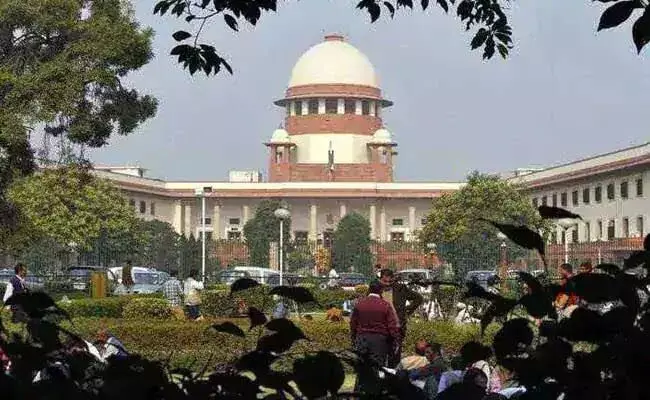
Time extension to file charge sheet not empty formality: SC
text_fieldsThe Supreme Court on Friday noted that the extension of time granted to probe agencies to file charge sheets in criminal cases is not an empty formality because it deprives the accused of their indefeasible right to seek default bail due to non-completion of investigation during the stipulated period.
The top court, in a significant verdict, set aside the Gujarat High Court judgment by which it had upheld a local court's decision to extend the time to conclude a probe from 90 to 180 days behind the back of the accused in a criminal case and ordered the release of the undertrials on default bail.
Section 167 of the Code of Criminal Procedure Code provides for the grant of default bail to an accused if the probe agency fails to conclude the investigation and file a charge sheet within a stipulated period of either 60 or 90 days in a court of competent jurisdiction.
Some special legislations like the Gujarat Control of Terrorism and Organised Crime Act, 2015 permit the prosecuting agencies to seek an extension of time to file charge sheets up to a period of 180 days to deny default bail to the accused in heinous offense cases.
The logical and legal consequence of the grant of extension of time is the deprivation of the indefeasible right available to the accused to claim a default bail.
"If we accept the argument that the failure of the prosecution to produce the accused before the Court and to inform him that the application of extension is being considered by the Court is a mere procedural irregularity, it will negate the proviso added by sub-section (2) of Section 20 of the 2015 (Gujarat) Act and that may amount to violation of rights conferred by Article 21 (right to life) of the Constitution, said a bench of Ajay Rastogi and Abhay S Oka.
The reason is the grant of extension of time takes away the right of the accused to get default bail which is intrinsically connected with the fundamental rights guaranteed under Article 21, the verdict said, adding the liberty of a person can be taken away by following a fair and reasonable procedure".
The top court was dealing with the question of the legal consequences of the failure of a trial court to procure the presence of the accused at the time of considering the plea of the public prosecutor for a grant of extension of time to complete the investigation.
Setting aside the verdicts of the high court and the trial court, it said, The extension of time is not an empty formality. The Public Prosecutor has to apply his mind before he submits a report/ an application for extension.












